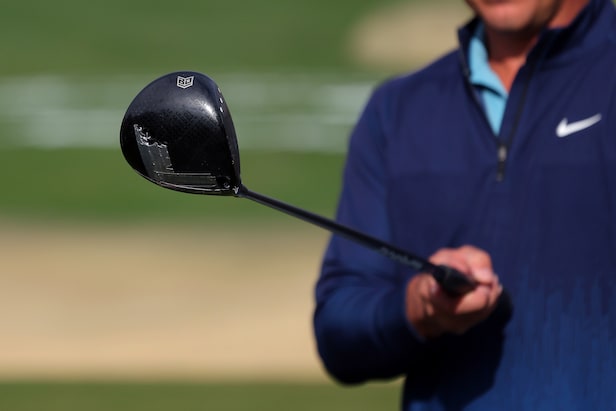This common mental mistake leads to three-putts—a strategy expert’s advice to fix it – Australian Golf Digest

- by Admin
- December 2, 2024

Here’s the corrected version:
When there’s a putt in front of you that you *really* want to make, golfers of all levels can often fall into the same mistake: they hit the putt too hard.
It all happens for the same reason. They’re afraid of leaving a putt short in front of their buddies, and the old never-up-never-in adage rears its head. So, they give it a little extra—and turn a potential one-putt into a potential three-putt.
That was the topic of discussion on our most recent Golf IQ podcast (which you can listen to right here) featuring DECADE Golf founder Scott Fawcett.
Fawcett explains that his testing shows that speed control issues are up to six times more common than directional issues. Fixing it starts with adopting the right mindset…
Focus on speed, not makes
Fawcett says that in order to make more putts, you’re going to have to adopt a mindset of not trying to make more putts.
Think of it like a game of bocce ball. Pretend that the hole isn’t there; your goal should be to roll your ball nearest to where your hole would’ve been. Your primary goal should be to hit the putt the right speed, Fawcett says.
To do that well, it means accepting a few things, Fawcett says:
- You’re going to make putts when you match the right speed with the right line, not by trying to ram the ball into the hole instead of figuring out the right line.
- Accept that good putts may finish slightly short.
- Stay committed to good speed control even after leaving putts short.
Why It Works
Although it may seem like a passive putting strategy, Fawcett says it works—it helped him go 72 holes at his recent PGA Tour Champions Q-School without a 3-putt and never face a comeback putt longer than 2.5 feet.
The reason why it works, he explains, is because it optimizes for total strokes rather than overall make percentage. And from a Strokes Gained perspective, it’s worth the trade: Even PGA Tour players miss 12 percent of four-foot putts. By eliminating stressful comebackers, even at the expense of leaving a few makeable putts short, you’ll be coming out ahead in the long term.
Once again you can listen, and subscribe, to the Golf IQ pod below:
This article was originally published on golfdigest.com
The Latest News
-
December 22, 2024The remarkable Lleyton Hewitt feat Cruz Hewitt can emulate after being handed 2025 Australian Open wildcard
-
December 22, 2024Forgotten man removes himself from Test talk
-
December 22, 2024Tiger Woods’ son Charlie makes a hole-in-one in the final round of the PNC Championship – Australian Golf Digest
-
December 22, 2024Tennis’ love match: Meet ‘Aussie’ Matteo Arnaldi and his Melburnian girlfriend
-
December 22, 2024GEORGIE PARKER: McSweeney was McStiff to get axed





